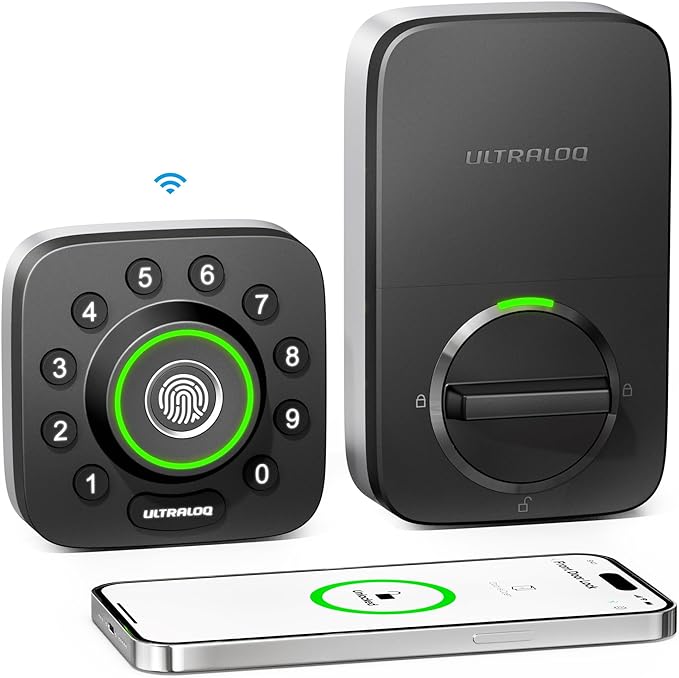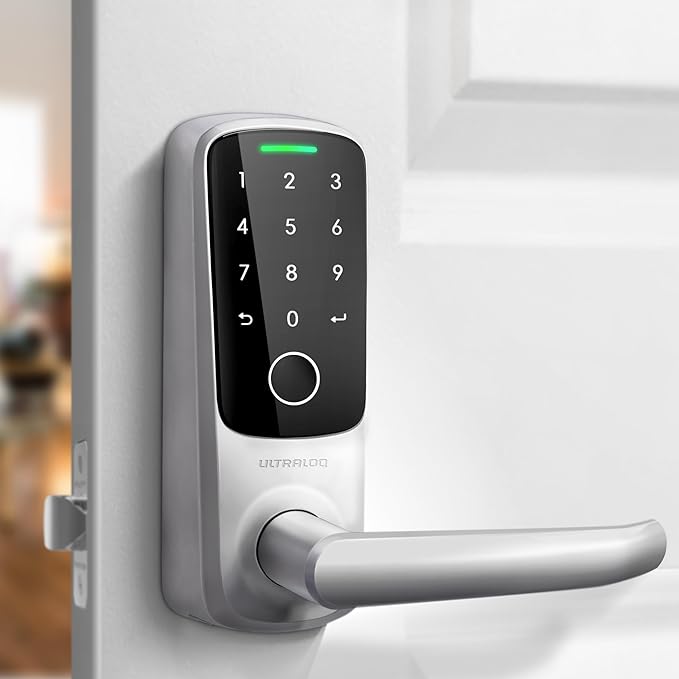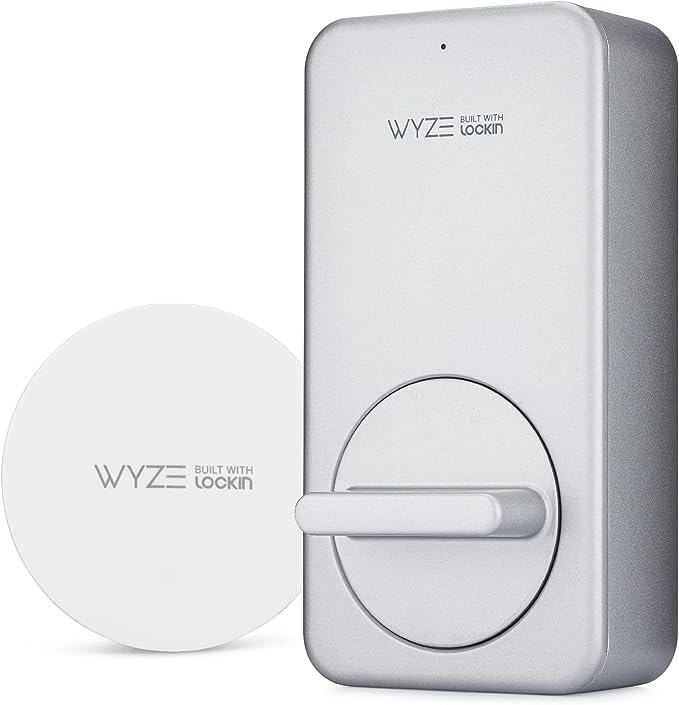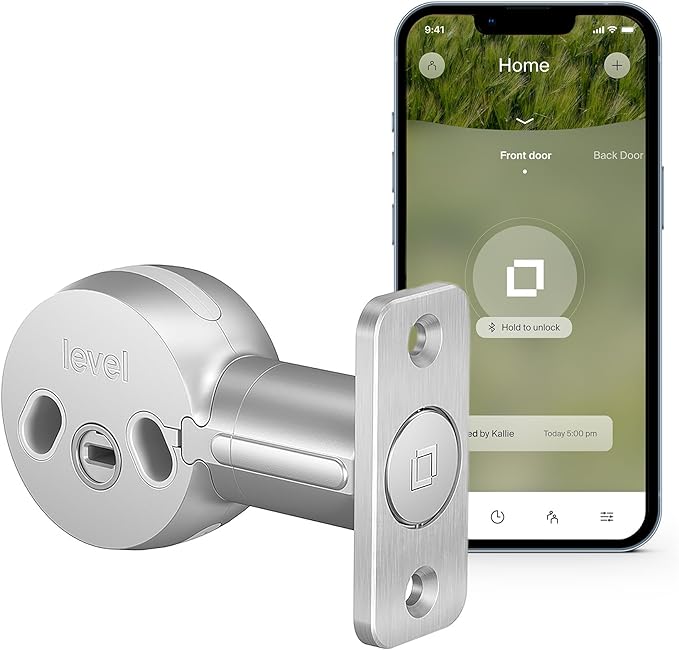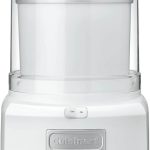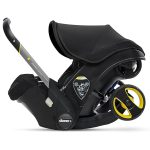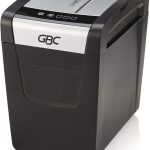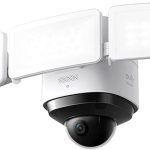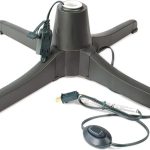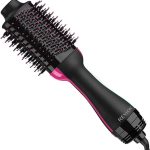As you consider upgrading your home’s security, you’re likely wondering which smart lock is right for you. With so many options on the market, it can be overwhelming. But what if you could narrow it down to the top four? You’d want to know what sets them apart, right? The ULTRALOQ U-Bolt Pro, ULTRALOQ Latch 5, Wyze Smart Door Lock, and Level Bolt Smart Deadbolt Lock are the cream of the crop, each boasting unique features that make them stand out from the rest. But which one will give you the peace of mind you’re looking for?
Contents
ULTRALOQ U-Bolt Pro Smart Lock with Door Sensor
If you’re looking for a commercial-level smart lock that offers unparalleled strength and durability, the ULTRALOQ U-Bolt Pro Smart Lock with Door Sensor is the best choice, boasting 35 times the strength of standard residential locks and a 7 times longer lifespan.
This 6-in-1 keyless entry door lock comes with built-in WiFi, fingerprint ID, smartphone control, auto open, WiFi deadbolt, and WiFi door lock.
You’ll appreciate its IP65 rating, making it dust and weatherproof, and its ability to withstand extreme temperatures.
With a 360° AI fingerprint ID and smartphone control from anywhere, you’ll have peace of mind knowing your home is secure.
Plus, its simple installation requires no drilling, making it a DIY-friendly option.
Best For: Homeowners looking for a high-security, commercial-level smart lock with advanced features and durability.
Pros:
- Offers unparalleled strength and durability with 35 times the strength of standard residential locks and a 7 times longer lifespan
- Provides advanced security features, including 360° AI fingerprint ID, smartphone control, and auto unlock
- Easy to install with no drilling required, making it a DIY-friendly option
Cons:
- Some customers have experienced issues with the lock’s motor and mobile app
- One customer reported a complete failure of the lock, rendering it unusable
- May have some compatibility issues with certain smart home systems
ULTRALOQ Latch 5 Smart Lock with Fingerprint ID
When managing multiple users and access levels is a top priority, the ULTRALOQ Latch 5 Smart Lock with Fingerprint ID stands out as an excellent choice, thanks to its built-in WiFi and ability to share temporary passwords to guests via smartphone app remotely.
You’ll appreciate the convenience of its 5-in-1 keyless entry system, which includes fingerprint ID, code, mechanical key, keypad, and smart lever.
With Bluetooth 4.0 Low Energy Connectivity, you can control the lock using your iOS or Android device.
Plus, you can view user logs, access records, and even control the lock with voice commands using Alexa or Google Assistant.
This weatherproof lock is perfect for busy households, and its zinc alloy construction guarantees durability.
Best For: Busy households, offices, apartments, rentals, and Airbnb hosts who need to manage multiple users and access levels.
Pros:
- Convenient 5-in-1 keyless entry system with fingerprint ID, code, mechanical key, keypad, and smart lever
- Ability to share temporary passwords to guests via smartphone app remotely and view user logs and access records
- Weatherproof and durable zinc alloy construction with a 18-month electronic and lifetime mechanical warranty
Cons:
- Quirky fingerprint recognition that may not always work accurately
- Occasional disconnection from WiFi that can cause inconvenience
- Battery life issues that require frequent replacement of the 4 AA batteries
Wyze Smart Door Lock, Wireless & Keyless Entry
For homeowners seeking a seamless keyless entry experience, the Wyze Smart Door Lock stands out with its wireless design and effortless 30-minute installation process.
You’ll appreciate the Wyze app’s guidance throughout the setup, which facilitates a hassle-free experience.
Once installed, you can control the lock remotely using the app, and take advantage of features like auto-lock and auto-unlock, which use GPS to detect when you’re approaching the door.
You can even issue temporary keys to guests and control access remotely.
The lock’s built-in gyroscope detects door position, and the keypad is highly recommended for manual entry and exit.
With its intuitive app and geofencing capabilities, you’ll enjoy a convenient and secure keyless entry experience.
Best For: Homeowners seeking a seamless keyless entry experience with wireless design and effortless installation process.
Pros:
- Easy and quick installation process guided by the Wyze app
- Remote control and auto-lock/unlock features using GPS and geofencing
- Temporary key issuance and remote access control for guests
Cons:
- Some users experienced issues with setup, particularly with door alignment
- Auto-unlock can be unreliable, especially on Android devices
- Battery life is relatively short, lasting around 6 months
Level Bolt Smart Deadbolt Lock for Keyless Lock Entry
The Level Bolt Smart Deadbolt Lock is the best choice for homeowners seeking exceptional strength and security in a keyless entry system.
It features a 6-stage stainless steel gearbox and adjustable backset fitting 2-3/8 and 2-3/4 profiles.
You’ll appreciate the convenience of keyless entry via the Level Home App, which works seamlessly with iOS, Android, and Apple HomeKit.
Plus, with geofencing technology, your door will automatically lock and open as you come and go.
The lock’s wire-free design makes installation a breeze, and its satin chrome finish will complement your door’s style.
As you consider this smart lock, you can rest assured that it meets the highest industry standards for strength and security.
Best For: Homeowners seeking a high-security, keyless entry system with advanced features like geofencing technology and smart home integration.
Pros:
- Keyless entry via the Level Home App for convenient access to your home
- Geofencing technology for automatic locking and unlocking
- Exceeds industry standards for strength and security with its 6-stage stainless steel gearbox
Cons:
- May require enlarging the hole in the door for installation
- Limited compatibility with certain door types (check website for compatibility)
- Battery life may vary depending on usage and environmental factors
Factors to Consider When Choosing Smart Locks
When you’re in the market for a smart lock, you’ll quickly realize there are many options to choose from.
You’ll want to ponder several key factors to guarantee you find the right one for your needs.
You’ll need to think about the type of lock, how it’s installed, and what features are must-haves for you, such as remote access and battery life.
Lock Type and Material
Considering your specific needs and the style of your door, you’ll want to select a smart lock type and material that fits seamlessly into your home’s aesthetic.
For instance, if you have a modern door, a sleek and minimalist smart lock made of stainless steel or aluminum might be the perfect fit. On the other hand, if you have a traditional or vintage door, a smart lock with a more ornate design and a brass or bronze finish might be more suitable.
You’ll also want to think about the durability and security of the lock’s material.
For example, smart locks made of solid brass or heavy-duty steel are more resistant to forced entry and can withstand harsh weather conditions. Additionally, some smart locks feature a protective coating or finish that resists corrosion and scratches.
When it comes to lock type, you’ll need to decide between a deadbolt, latch, or mortise lock.
Deadbolts offer the highest level of security, while latch locks are more suitable for interior doors. Mortise locks, on the other hand, are ideal for doors with a lot of clearance. By choosing the right lock type and material, you can guarantee that your smart lock not only looks great but also provides exceptional security and functionality.
Installation and Setup
You’re just a few simple steps away from enjoying the convenience and security of a smart lock, but first, you need to get it installed and set up correctly.
Many smart locks offer DIY installation with a screwdriver, making it easy to replace your current deadbolts without any drilling required. Templates are often provided to help with positioning the lock, and it’s vital to verify the lock bolt slides freely and doesn’t bind up during installation.
The installation process can be straightforward with easy-to-follow instructions, but some users may experience issues with setup, particularly with door alignment.
To avoid any hiccups, make sure the WiFi dongle is plugged in close to the lock and has a good WiFi connection. Some smart lock apps, like Wyze, guide you through the entire installation process, including calibration, which typically involves opening the door all the way and following the app’s instructions.
Remote Access Features
With remote access features, you can control and monitor your smart lock from anywhere, granting you the flexibility to manage your home’s security from the palm of your hand.
This convenience is made possible through smartphone apps that connect to your lock via WiFi or a separate bridge/hub. You can grant access to guests, service providers, or family members, and revoke it whenever you want.
Many smart locks also send real-time notifications when someone enters or exits your property, providing an added layer of security and peace of mind.
Some smart locks take it a step further by integrating with voice assistants like Alexa or Google Assistant, allowing you to control your lock with voice commands.
This means you can open or release your door, or check its status, without lifting a finger.
When choosing a smart lock with remote access features, consider how you plan to use them. Do you need to grant access to others frequently? Do you want voice control capabilities?
Answering these questions will help you find the best smart lock for your needs.
Battery Life Concerns
When selecting a smart lock, one essential factor to weigh is its battery life, as it can substantially impact the overall user experience and maintenance requirements.
You’ll want to consider how often you’ll need to replace the batteries, as this can vary greatly depending on factors like usage, environmental conditions, and battery quality.
For instance, smart locks with Bluetooth connectivity tend to have shorter battery life, typically lasting around 6-12 months, whereas locks with Wi-Fi connectivity can last up to 2 years or more.
Features like auto-lock and auto-unlock can also drain batteries faster if not properly configured or calibrated.
However, some smart locks have battery-saving features that can help extend battery life. These may include low-battery warnings, power-saving modes, or even solar-powered batteries.
When choosing a smart lock, it’s essential to consider the battery life and replacement requirements to ensure minimal maintenance and optimal performance.
Durability and Strength
Beyond battery life, another essential aspect to evaluate in a smart lock is its durability and strength, as a lock that can’t withstand physical stress or harsh environmental conditions will compromise your home’s security.
You want a lock that can resist forced entry, extreme temperatures, and humidity. Look for locks made from high-quality materials, such as stainless steel or brass, which are more resistant to corrosion and wear.
Also, consider the lock’s IP rating, which measures its resistance to water and dust. A higher rating means the lock can withstand harsher conditions.
When evaluating durability, you should also check the lock’s mechanical components. A well-built lock with sturdy gears and a robust motor will be able to withstand heavy use.
Additionally, consider the lock’s certification, such as ANSI/BHMA or UL, which confirms it meets certain standards for security and durability.
Frequently Asked Questions
Can I Use Smart Locks With My Existing Door Hardware?
You’re wondering if you can upgrade to smart locks without replacing your existing door hardware. The good news is that you can, as most smart locks are designed to work with standard door locks, making it a seamless integration.
Do Smart Locks Work With Amazon Alexa and Google Assistant?
“Did you know 72% of smart home owners control devices with voice commands? You can, too! Yes, many smart locks are compatible with Amazon Alexa and Google Assistant, allowing you to lock/unlock and monitor your door with just your voice.”
Are Smart Locks Hackable and Vulnerable to Cyber Attacks?
You’re right to worry about cyber security. Yes, smart locks can be vulnerable to hacking and cyber attacks if not properly secured, but you can minimize risks by choosing locks with robust encryption and regular software updates.
Can I Grant Temporary Access to Guests or Service Providers?
“You’re basically a hotel manager now, granting temporary access to guests and service providers left and right. Luckily, most smart locks let you create custom access codes or virtual keys with expiration dates, so you can breathe easy.”
Do Smart Locks Require a Hub or Bridge for Wi-Fi Connectivity?
You’re wondering if smart locks need a hub or bridge for Wi-Fi connectivity. Most smart locks do require a hub or bridge to connect to your Wi-Fi network, but some models can connect directly.
Conclusion
You’ve made it to the final step in your smart lock journey!
But before you make a decision, consider this: did you know that most burglars break in through an open door or by using a key?
Having a smart lock can reduce the risk of break-ins by up to 90%!
With the right smart lock, you can rest easy knowing your home is secure.
Take your time, weigh the pros and cons, and choose the smart lock that best fits your needs.
